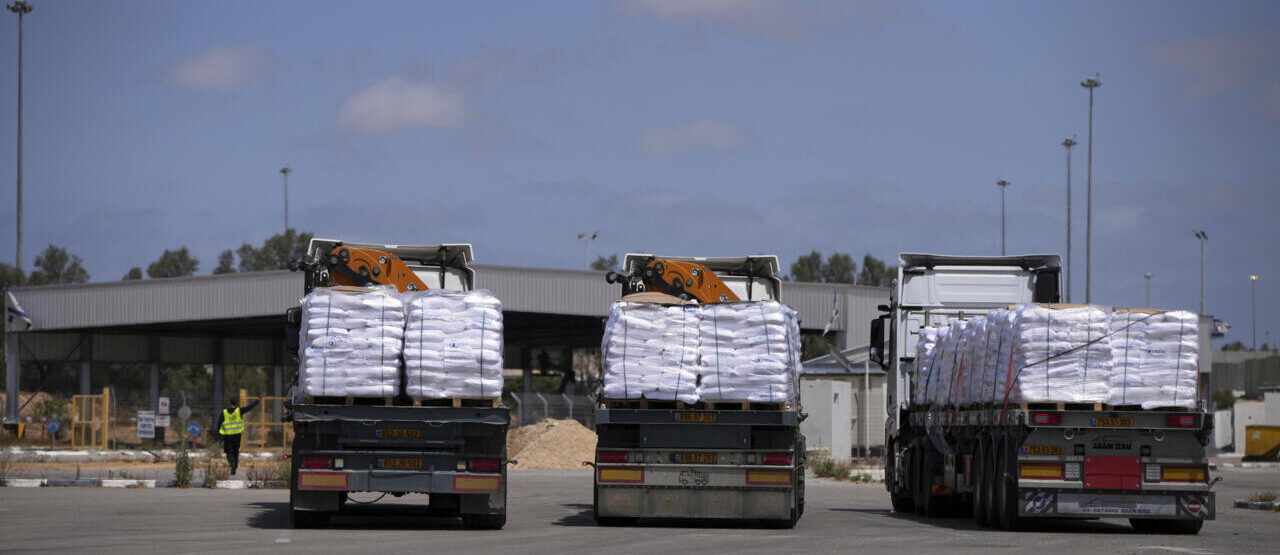The humanitarian crisis in Gaza continues to deepen amid ongoing conflict and a near-total blockade, with the United Nations reporting that despite Israel permitting 93 aid trucks into the territory, no aid has actually reached the civilians in desperate need. The situation is worsening rapidly, with international pressure mounting on Israel to allow unrestricted humanitarian access as the population faces starvation, disease, and mass displacement.
The Humanitarian Context
Since the conflict escalated in October 2023, Gaza has endured relentless bombardment, widespread destruction of civilian infrastructure, and severe restrictions on the movement of people and goods. According to the Ministry of Health in Gaza, over 52,900 Palestinians have been killed and nearly 120,000 injured as of mid-May 2025. The United Nations Relief and Works Agency (UNRWA) reports that approximately 1.9 million people—about 90 percent of Gaza’s population—have been displaced, many multiple times, fleeing airstrikes and ground operations.
The blockade imposed by Israel since March 2025 has effectively cut off all essential supplies, including food, fuel, medical aid, and vaccines. UN agencies warn that the population is on the brink of famine, with half a million people facing starvation and over 70,000 children under five expected to suffer from acute malnutrition in the coming months. The healthcare system is collapsing under the strain, with hospitals frequently targeted and medical supplies running dangerously low. The death toll among vulnerable groups, especially women and children, is staggering. UN Women reports that more than 28,000 women and girls have been killed since the war began, with many more suffering from displacement, malnutrition, and lack of protection.
Aid Trucks Allowed but No Aid Delivered
In recent weeks, Israel authorized the entry of 93 aid trucks into Gaza, marking a rare concession after weeks of a complete blockade. However, the United Nations and humanitarian organizations report that despite these trucks crossing into Gaza, the aid has not reached the civilian population. Supplies remain stuck at distribution points or are delayed due to logistical and security challenges. Tom Fletcher, the UN Under-Secretary-General for Humanitarian Affairs, warned that without immediate delivery of aid, thousands of babies could die within 48 hours due to lack of nutrition.
Israel maintains that it is allowing only a “minimal, basic bridge” of supplies to prevent famine, citing concerns over Hamas allegedly misusing aid materials. Hamas denies these accusations. The Kerem Shalom crossing, a critical commercial route into southern Gaza, saw some aid deliveries for the first time in 11 weeks, yet the volume remains insufficient to meet the enormous needs.
International Response and Calls for Action
The international community has intensified pressure on Israel to lift restrictions and allow unhindered humanitarian access. UN agencies, human rights organizations, and foreign governments emphasize that the blockade and ongoing hostilities violate international humanitarian law, particularly the protection of civilians and the right to humanitarian aid.
UNRWA Commissioner-General Philippe Lazzarini highlighted the devastating impact of the blockade and bombardments, noting that UNRWA installations, including schools and health centers sheltering displaced people, have been repeatedly struck by airstrikes. Over 300 UNRWA staff members have been killed since the conflict began, further hampering aid delivery efforts.
The UN and humanitarian actors call for an immediate ceasefire, the safe passage of aid convoys, and the protection of civilians. The situation is described as “chilling” by UN officials, with the risk of famine, disease outbreaks, and mass casualties escalating daily.
The Human Toll and Future Outlook
The Gaza crisis represents one of the most severe humanitarian emergencies in recent history. The combination of sustained conflict, blockade, and inadequate aid access has pushed the population to the brink of catastrophe. Vulnerable groups—children, women, the elderly—bear the heaviest burden, with thousands already dead and millions facing starvation and displacement.
Without urgent and comprehensive humanitarian intervention, the death toll will continue to rise. The international community’s ability to influence Israel’s policies and ensure aid reaches those in need remains critical. The unfolding crisis demands immediate attention and action to prevent further loss of life and to uphold the basic human rights of the people of Gaza.

